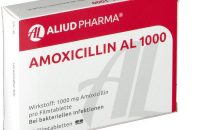Sumycin – A Powerful Antibiotic Medication for Treating Bacterial Infections
-
Sumycin
as low as $0,29Active ingredient: Tetracycline
Dosage: 250mg, 500mg
Short general description of the drug Sumycin
Sumycin is a type of antibiotic medication that is commonly used to treat various bacterial infections in the body. It belongs to the tetracycline group of antibiotics and works by inhibiting the growth of bacteria. Sumycin is available in various forms, including tablets and capsules, and is usually taken orally with or without food. It is important to follow the prescribed dosage and complete the full course of treatment to maximize the effectiveness of Sumycin.
Antibiotics available over the counter (OTC)
When it comes to treating bacterial infections, antibiotics are often prescribed by doctors. However, in some cases, people may prefer to have access to antibiotics without a prescription, either due to convenience or to save on healthcare costs. While the vast majority of antibiotics require a prescription from a healthcare professional, there are a few options available over the counter (OTC) that can be purchased without a prescription.
OTC Antibiotics and their Uses
1. Bacitracin – Bacitracin is an OTC antibiotic that comes in the form of an ointment. It is commonly used for topical infections, such as cuts, scrapes, and minor burns. Bacitracin works by inhibiting the growth of bacteria and is generally safe to use on the skin.
2. Neomycin – Neomycin is another OTC antibiotic commonly found in topical ointments. It is effective against a wide range of bacteria and is often used to prevent or treat skin infections. However, it is important to note that some individuals may be allergic to neomycin, so it’s best to consult a healthcare professional before using it.
3. Polymyxin B – Polymyxin B is an antibiotic available in cream or ointment form for topical use. It is commonly used to treat skin infections caused by bacteria. Like neomycin, it is important to check for any allergies before using polymyxin B.
4. Triple antibiotic ointment – Triple antibiotic ointment is a combination of bacitracin, neomycin, and polymyxin B. It is used to prevent or treat infections in wounds, cuts, and burns. This OTC medication is commonly found in first aid kits and can help prevent bacterial growth in minor skin injuries.
Important Considerations
While OTC antibiotics can be convenient, it is crucial to use them responsibly and as directed. It is important to note that OTC antibiotics are only effective for certain types of bacterial infections and may not be suitable for more severe or systemic infections.
It is recommended to consult a healthcare professional if you are unsure about the appropriate use of OTC antibiotics or if your symptoms do not improve after using them. It is also important to read and follow the instructions on the packaging carefully and discontinue use if you experience any adverse reactions.
Remember, self-diagnosing and self-medicating with antibiotics can potentially lead to antibiotic resistance, which is a growing concern in healthcare. It is always best to consult with a healthcare professional before using any medication, including OTC antibiotics.
Disclaimer: The information provided in this article is for educational purposes only and should not be considered medical advice. Always consult with a healthcare professional before starting any new medication.
-
Sumycin
as low as $0,29Active ingredient: Tetracycline
Dosage: 250mg, 500mg
Sumycin: Usage, Dosage, and Side Effects
Sumycin is a widely used antibiotic medication that is effective in treating a variety of bacterial infections in the body. Here, we will provide you with detailed information about the usage, dosage, and potential side effects of Sumycin.
1. How does Sumycin work?
Sumycin belongs to the tetracycline group of antibiotics. It works by inhibiting the growth of bacteria and preventing them from multiplying further. This helps the immune system to combat the infection more effectively.
2. Forms and administration
Sumycin is available in tablet and capsule form, and it is typically taken orally. The dosage and frequency of intake depend on the severity of the infection and the individual patient’s condition. Sumycin can be taken with or without food, but it is generally recommended to take it on an empty stomach to ensure better absorption.
It is important to follow the prescribed dosage and complete the full course of treatment, even if the symptoms improve before the medication is finished. Stopping the medication prematurely may lead to the reoccurrence of the infection.
3. Dosage guidelines
The dosage of Sumycin is determined based on the type and severity of the infection, as well as the patient’s age and overall health. The following are general guidelines for Sumycin dosage:
| Type of Infection | Dosage |
|---|---|
| Respiratory tract infections | 250-500mg every 6 hours |
| Urinary tract infections | 250-500mg every 6 hours |
| Acne | 250mg twice daily |
| Gastrointestinal infections | 500mg every 6 hours |
These dosage guidelines are general recommendations. Your healthcare provider will determine the appropriate dosage for your specific infection and condition.
4. Side effects and precautions
While Sumycin is generally safe and well-tolerated, it may cause some side effects in certain individuals. Common side effects include nausea, vomiting, diarrhea, stomach pain, and discoloration of teeth in children. If any side effects persist or worsen, it is important to consult your healthcare provider.
Sumycin should not be taken by pregnant women, breastfeeding mothers, or children under 8 years of age, as it may cause harm to the developing fetus or child. Additionally, Sumycin may interact with certain medications, such as antacids and blood thinners, so it is important to inform your healthcare provider about all the medications you are currently taking.
In conclusion, Sumycin is an effective antibiotic medication for treating bacterial infections. It is important to follow the prescribed dosage and complete the full course of treatment to maximize its effectiveness. If you have any concerns or experience any side effects, consult your healthcare provider for further guidance.
4. Side effects of Sumycin
While Sumycin is generally considered safe and effective in treating bacterial infections, like all medications, it can potentially cause side effects. It is important to be aware of these side effects so that you can promptly seek medical attention if they occur.
Common side effects
Some of the common side effects of Sumycin include:
- Nausea
- Vomiting
- Diarrhea
- Loss of appetite
- Stomach upset
- Headache
- Dizziness
- Skin rash or itching
- Discoloration of the teeth
These side effects are usually mild and temporary. However, if they persist or worsen, it is important to consult your healthcare provider.
Rare but serious side effects
In rare cases, Sumycin can cause more serious side effects. These can include:
- Allergic reactions, such as hives, swelling of the face or tongue, or difficulty breathing
- Severe diarrhea or abdominal pain
- Yellowing of the skin or eyes (jaundice)
- Intracranial hypertension (increased pressure inside the skull), which can cause symptoms such as severe headache, blurred vision, and confusion
- Liver problems
- Kidney problems
If you experience any of these rare but serious side effects, it is important to seek immediate medical attention.
Precautions and interactions
Before taking Sumycin, it is important to inform your healthcare provider about any other medications you are taking, including over-the-counter drugs, herbal supplements, and vitamins. Some medicines may interact with Sumycin and cause harmful effects or reduce its effectiveness.
Additionally, Sumycin should be used with caution in certain populations, such as pregnant or breastfeeding women, children under 8 years old, and individuals with a history of kidney or liver problems.
Your healthcare provider will be able to assess your individual situation and determine if Sumycin is the right choice for you.
Conclusion
Sumycin is a common antibiotic used to treat bacterial infections. While it is generally safe and effective, it is important to be aware of the potential side effects and take necessary precautions. Consult your healthcare provider if you experience any concerning symptoms or have any questions about the medication.
For more information about Sumycin, you can visit the Drugs.com website, which provides detailed and authoritative information on medications.
Sumycin: Everything You Need to Know
Sumycin is a widely used antibiotic medication belonging to the tetracycline group of antibiotics. It is primarily prescribed to treat various bacterial infections in the body. If you have been prescribed Sumycin, it’s essential to understand how it works and how to use it effectively to ensure optimal results.
How Does Sumycin Work?
Sumycin works by inhibiting the growth of bacteria in the body. It does this by stopping the bacteria from producing essential proteins necessary for their survival and replication. By hindering their growth, Sumycin effectively treats the infection and helps your body fight off the bacteria
Forms and Dosage
Sumycin is available in various forms, including tablets and capsules. These are usually taken orally with or without food. The dosage prescribed by your doctor will depend on the type and severity of the infection as well as your overall health condition.
It is crucial to follow your prescribed dosage and complete the full course of treatment, even if you start feeling better before the completion. Skipping doses or stopping the medication early could result in the bacteria becoming resistant to Sumycin, making future infections harder to treat.
Possible Side Effects
Like any medication, Sumycin may cause some side effects. Common side effects include nausea, vomiting, diarrhea, stomach upset, and loss of appetite. These side effects are usually mild and go away on their own. However, if you experience severe or persistent side effects, it is important to contact your doctor immediately.
Precautions and Interactions
Before starting Sumycin, it is important to inform your doctor about any existing medical conditions or allergies you may have, as well as any other medications or supplements you are currently taking. Sumycin can interact with certain drugs, such as antacids, calcium supplements, and oral contraceptives, reducing their effectiveness.
If you are pregnant or breastfeeding, it is important to discuss the potential risks and benefits of taking Sumycin with your doctor, as it may affect fetal development or pass into breast milk.
Conclusion
Sumycin is a versatile antibiotic medication commonly prescribed for various bacterial infections. By following the prescribed dosage and completing the full course of treatment, you can maximize its effectiveness and prevent antibiotic resistance. If you have any concerns or questions about Sumycin, it is always best to consult with your healthcare provider for personalized advice.
-
Sumycin
as low as $0,29Active ingredient: Tetracycline
Dosage: 250mg, 500mg
6. Potential side effects of Sumycin
Like any medication, Sumycin can cause side effects in some individuals. It is important to be aware of these potential side effects and seek medical attention if they become severe or persistent. Some of the common side effects of Sumycin include:
- Gastrointestinal disturbances: Sumycin can cause nausea, vomiting, diarrhea, and abdominal pain. Taking the medication with food or milk can help reduce these symptoms.
- Skin reactions: Some individuals may experience skin reactions such as rash, itching, or hives while taking Sumycin. If you notice any skin changes, it is important to inform your healthcare provider.
- Sensitivity to sunlight: Sumycin can make your skin more sensitive to sunlight, leading to an increased risk of sunburn. It is recommended to use sunscreen and protective clothing when going outside.
- Discoloration of teeth: Sumycin can cause permanent discoloration of developing teeth in children under the age of 8. It is important to avoid giving Sumycin to young children, unless specifically prescribed by a healthcare professional.
In rare cases, Sumycin can cause more serious side effects. These may include:
- Allergic reactions: Some individuals may experience severe allergic reactions to Sumycin, such as swelling of the face, lips, or tongue, difficulty breathing, or tightness in the chest. These symptoms require immediate medical attention.
- Liver problems: In rare cases, Sumycin can cause liver damage. Symptoms of liver problems may include yellowing of the skin or eyes, dark urine, or persistent fatigue. If you experience any of these symptoms, seek medical help right away.
- Renal toxicity: Sumycin can also affect kidney function in some individuals. If you notice changes in urination patterns, such as decreased urine output or blood in the urine, it is important to contact your healthcare provider.
It is important to note that the above lists are not exhaustive, and other side effects may occur. If you have any concerns about the side effects of Sumycin or experience any unusual symptoms while taking the medication, it is best to consult your healthcare provider for further evaluation and advice.
7. Precautions and Side Effects of Sumycin
When taking Sumycin, it is important to be aware of certain precautions and potential side effects. Here are some key points to keep in mind:
Precautions:
– Before starting Sumycin, inform your healthcare provider about any existing medical conditions you have, such as liver or kidney disease, lupus, or allergies. This information will help your doctor determine if Sumycin is suitable for you.
– Inform your doctor if you are pregnant, planning to become pregnant, or breastfeeding. Sumycin may not be recommended during pregnancy as it can affect the development of the unborn baby’s teeth and bones. It may also pass into breast milk and harm the nursing infant.
– Avoid prolonged exposure to sunlight or artificial UV rays, such as tanning beds, while taking Sumycin. This medication may increase your sensitivity to sunlight, leading to sunburn more easily. Use protective clothing and sunscreen when going outdoors.
– Sumycin may interact with certain medications, including antacids, iron supplements, and oral contraceptives. Inform your healthcare provider about all the medications you are currently taking to avoid any potential drug interactions.
Side Effects:
– Common side effects of Sumycin include nausea, vomiting, diarrhea, stomach upset, and loss of appetite. These side effects are usually mild and go away on their own. If they persist or worsen, contact your doctor.
– Sumycin may also cause more serious side effects, although these are rare. These can include severe stomach pain, persistent headache, blurred vision, yellowing of the skin or eyes (jaundice), dark-colored urine, or unusual bleeding or bruising. If you experience any of these symptoms, seek medical attention immediately.
– In rare cases, Sumycin can also cause a severe allergic reaction. Symptoms may include rash, itching, swelling, severe dizziness, or difficulty breathing. If you have an allergic reaction to Sumycin, seek emergency medical help.
– Long-term use of Sumycin has been associated with the development of antibiotic-resistant bacteria. It is important to only take Sumycin as prescribed by your healthcare provider and to complete the full course of treatment, even if you start to feel better.
It is essential to follow the precautions and report any side effects to your healthcare provider while taking Sumycin. Your doctor will be able to assess if the benefits of using Sumycin outweigh the potential risks in your specific situation.








